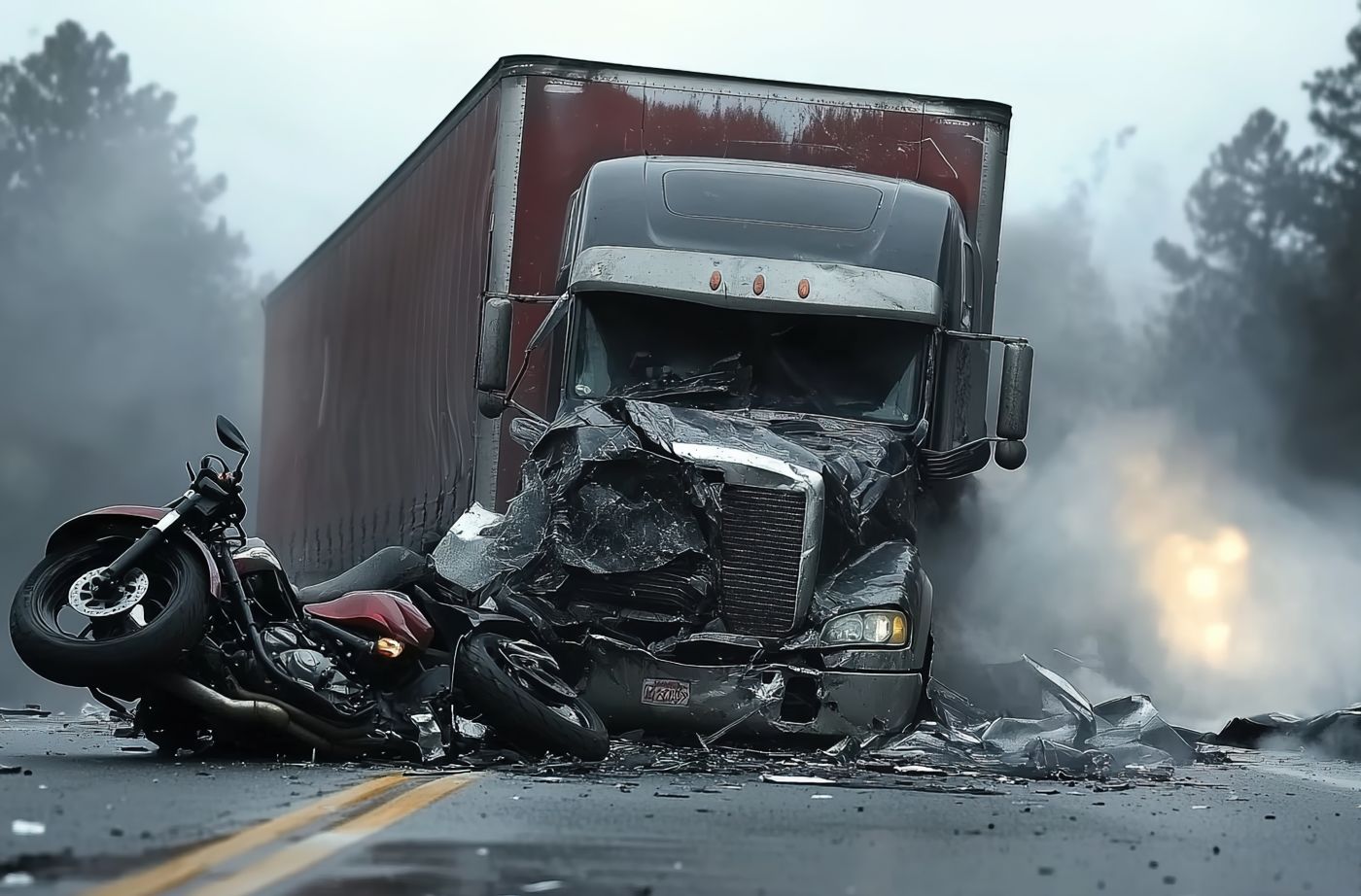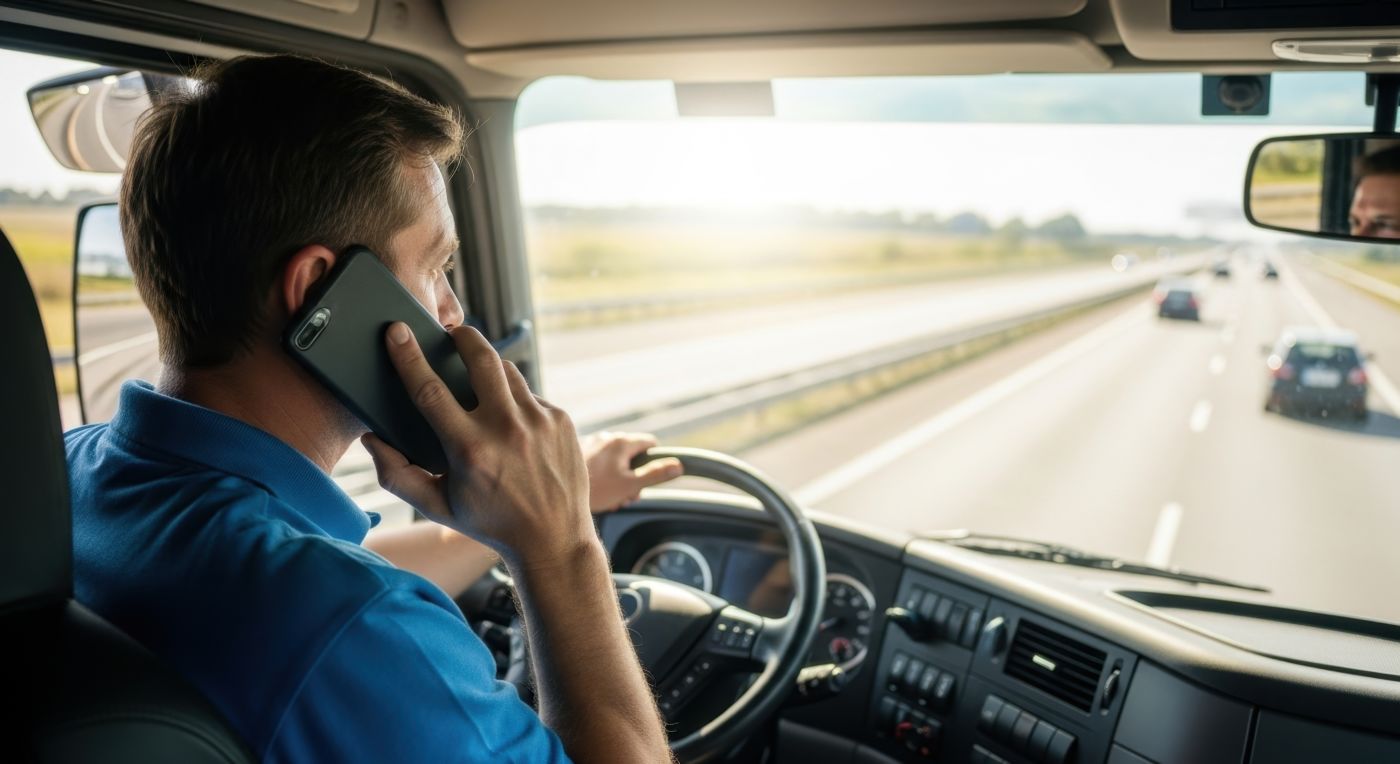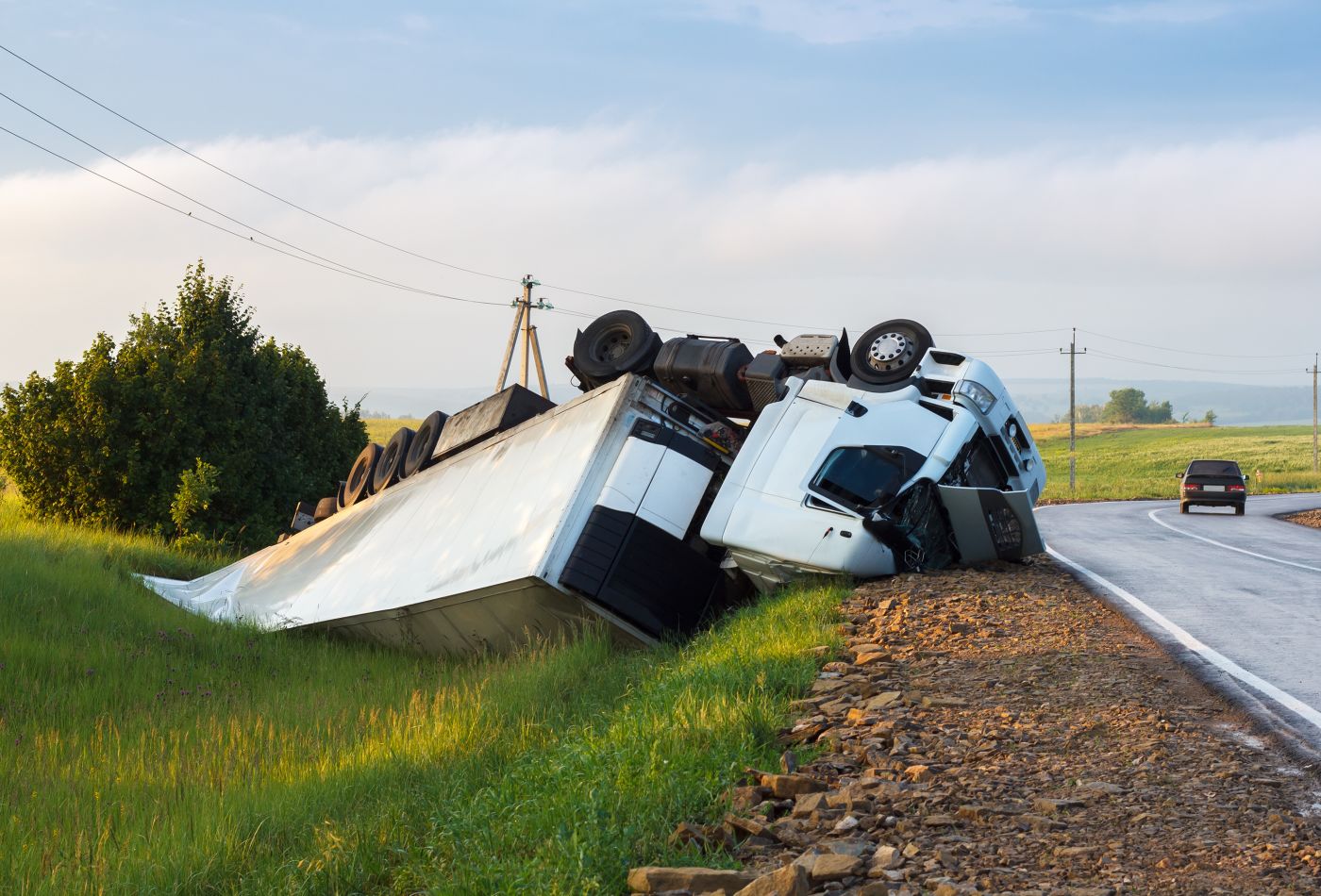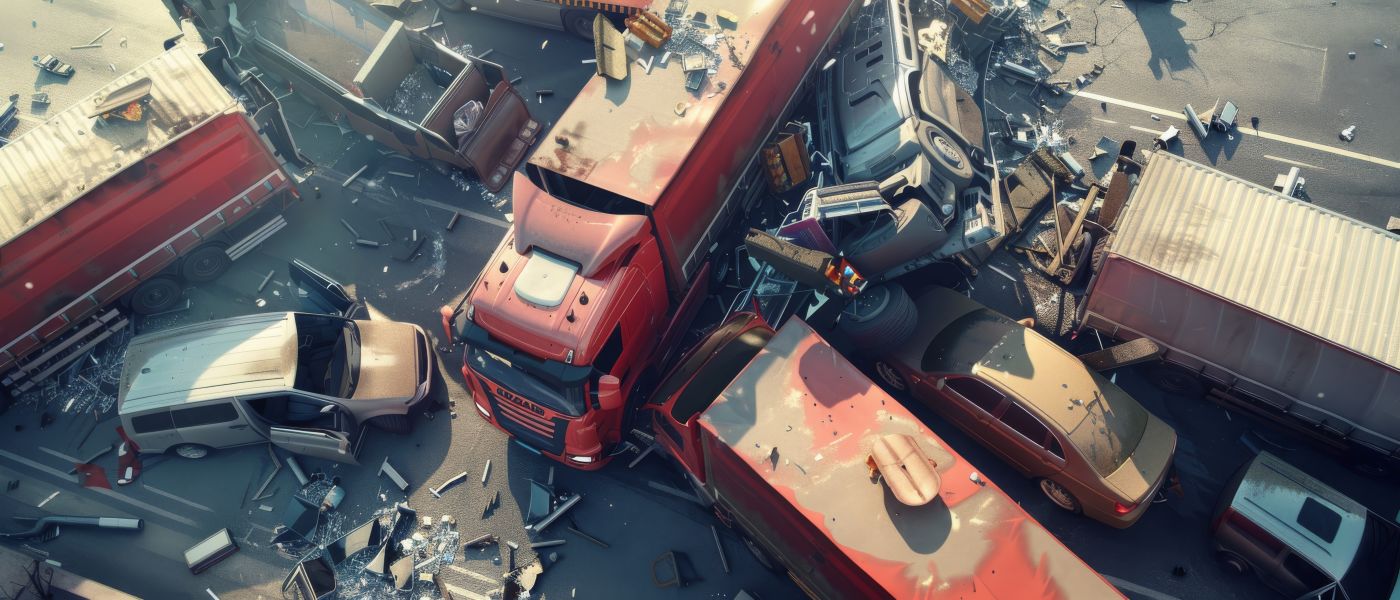
A trucking accident can leave victims and their families facing life-changing injuries, financial stress, and emotional strain. Large commercial vehicles weigh tens of thousands of pounds, and when they collide with smaller passenger cars, the results are often devastating. Victims need clear answers about who’s responsible for their losses and how they can seek justice.
Liability in these cases can be complicated, especially when both the driver and the trucking company are involved. Victims often ask whether they should sue the driver, the company, or both. This decision can affect the outcome of their claim and the compensation they receive.
Harris & Hart, Attorneys at Law, offers vital support to trucking accident victims. The firm assists clients in Kansas City, Kansas, and across the state as well as in Missouri. If you or someone you love has been injured in a trucking accident in Kansas or Missouri, don’t wait. Contact them to schedule a free consultation.
Legal Basis For Liability In Trucking Accident Cases
Liability in trucking accidents stems from negligence law. The core question is whether someone acted carelessly, and if that carelessness caused injury. Because drivers often operate as employees or contractors for large companies, responsibility can extend beyond the person behind the wheel.
Kansas courts may find that liability rests on:
Driver negligence: Direct unsafe actions such as speeding, distraction, or fatigue.
Company negligence: Failures in hiring, training, or maintenance.
Shared fault: Both driver and company contributed to the accident.
Determining who’s responsible requires a close look at employment arrangements, company practices, and the facts of the accident.
When The Driver May Be Held Liable
Truck drivers are legally required to operate their vehicles safely and responsibly. When they fail to uphold this duty, their actions can lead to serious accidents and make them personally liable for resulting injuries or damages. Some common examples of driver negligence that often play a key role in trucking accident claims:
Distracted driving: Using a phone, GPS, or dispatch device while operating the truck.
Driving under the influence: Alcohol or drug impairment that reduces reaction time.
Driver fatigue: Ignoring hours-of-service rules set by the Federal Motor Carrier Safety Administration (FMCSA).
Reckless actions: Speeding, aggressive lane changes, or tailgating.
These actions pose a direct threat to others on the road. If proven, they can build a strong case against the driver. However, the company may also bear responsibility if the driver was acting within the scope of their employment.
When The Trucking Company May Be Held Liable
Trucking companies have obligations to maintain safety standards. When they cut corners or ignore regulations, their actions—or inactions—can make them liable.
When a trucking accident occurs, the driver isn’t always the only party at fault. In many cases, the trucking company’s own practices directly contribute to unsafe conditions on the road. Some of the most common grounds for holding a trucking company liable:
Negligent hiring: Employing drivers without proper qualifications or with poor safety histories.
Negligent supervision: Failing to monitor compliance with safety rules.
Improper maintenance: Skipping inspections, which may cause tire blowouts or brake failures.
Unsafe scheduling: Creating delivery demands that encourage drivers to speed or skip rest breaks.
Holding companies accountable can be essential. They usually carry larger insurance policies and greater resources to cover victims’ losses.
Respondeat Superior And Employer Liability
The legal principle of respondeat superior means employers can be held accountable for their employees’ actions if those actions occurred while doing job-related tasks. For example, if a driver causes a crash while completing a delivery, the trucking company may share liability.
If the driver was off duty and using the truck for personal reasons, though, the company might not be responsible. These details are critical when deciding who to sue.
Independent Contractors And Liability Questions
Some companies attempt to shield themselves by labeling drivers as independent contractors. Courts, however, look beyond job titles and review the true nature of the working relationship. If the company controls major aspects of a driver’s work—such as routes, schedules, or maintenance—the driver may legally be treated as an employee.
Victims benefit from having a trucking accident attorney evaluate these arrangements to see if a company can still be held accountable despite the label.
Multiple Defendants And Shared Fault
Kansas applies comparative negligence, meaning more than one party can share liability. In trucking accidents, this can involve:
The driver: If their unsafe actions directly caused the crash.
The company: If hiring, training, or supervision failures contributed.
Parts manufacturers: If a defective brake or tire led to the collision.
Maintenance providers: If repairs or inspections were improperly handled.
Victims must carefully identify every potential defendant. Suing multiple parties may increase the chances of securing full compensation.
Federal And State Regulations That Affect Liability
Trucking is heavily regulated, with both federal and Kansas state laws setting strict rules. Violations of these rules can be strong evidence of negligence.
Key regulations include:
Hours-of-service limits: Preventing fatigue by capping the number of consecutive driving hours.
Weight restrictions: Limiting cargo loads to reduce risks of rollovers or mechanical strain.
Drug and alcohol testing: Makking sure drivers remain sober on the road.
Inspection requirements: Mandating routine checks to keep vehicles safe.
A trucking accident attorney can analyze whether any of these rules were broken and use violations to support liability claims.
Evidence That Establishes Liability
Strong evidence is the cornerstone of any trucking accident claim. Without it, proving negligence becomes nearly impossible.
Some common types of evidence used are:
Driver logs: Showing rest breaks and total driving hours.
Electronic logging device (ELD) data: Tracking vehicle speed and routes.
Inspection reports: Confirming maintenance and repairs.
Witness statements: Offering first-hand accounts of the accident.
Accident reconstruction: Providing expert analysis of how the crash occurred.
Gathering this evidence quickly is vital. Physical and digital records can be altered or destroyed, making timely action important.
Damages Available To Victims
After establishing liability in a trucking accident, victims can pursue compensation for the full range of losses they have suffered. Understanding the different categories of damages helps clarify what may be recoverable in a claim:
Medical expenses: Covering hospital stays, surgeries, and future treatment.
Lost wages: Replacing income missed during recovery.
Reduced earning capacity: Compensating for long-term disability.
Pain and suffering: Addressing physical and emotional distress.
Property damage: Repairing or replacing damaged vehicles.
The scope of compensation depends on the evidence and the allocation of fault.
Strategic Benefits Of Suing The Company
While individual drivers may be responsible, trucking companies often provide greater opportunities for victims to recover full compensation. They carry larger insurance policies and are bound by more extensive regulations. Suing the company can also help address systemic safety issues, pushing companies toward safer practices.
A trucking accident attorney may pursue claims against both driver and company simultaneously, keeping all options open.
The Impact Of Insurance Policies
Insurance coverage shapes nearly every trucking accident case. Federal law requires companies to carry significant liability coverage—often in the millions of dollars. In contrast, an individual driver may only have modest coverage.
Deadlines To File In Kansas
Kansas law generally gives victims two years from the date of the accident to file a lawsuit. Missing this deadline may eliminate the chance to recover damages altogether.
Working with an attorney helps preserve evidence and protect a victim’s legal rights.
Case Examples That Illustrate Liability
Real-world cases often demonstrate how liability can shift:
Driver-only liability: A driver impaired by alcohol causes an accident, resulting in personal responsibility.
Company liability: A trucking company ignored brake maintenance, causing a multi-car collision.
Shared liability: A fatigued driver, under pressure from unrealistic schedules, caused a wreck, resulting in both driver and company liability.
These examples show why each case requires careful examination.
How A Trucking Accident Attorney Helps
Trucking cases involve powerful companies and insurers. Victims may feel outmatched, but legal guidance can level the playing field.
A trucking accident attorney can:
Investigate the accident thoroughly.
Preserve vital evidence before it’s lost.
Identify all liable parties.
Negotiate with insurers.
File lawsuits when necessary.
This type of representation provides victims with the best opportunity to recover damages and move forward with their lives.
Contact An Experienced Attorney
Determining whether the driver, the trucking company, or both should be sued is rarely simple. Victims in Kansas should be aware of their options, supported by evidence and a clear legal strategy.
Harris & Hart, Attorneys at Law, serves clients from throughout Kansas and Missouri, including the Kansas City area and its surrounding communities. The firm helps victims build strong claims and hold the appropriate parties accountable. If you or a loved one has been harmed in a trucking accident, reach out to Harris & Hart, Attorneys at Law, today to talk about your case.



